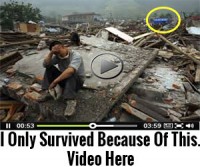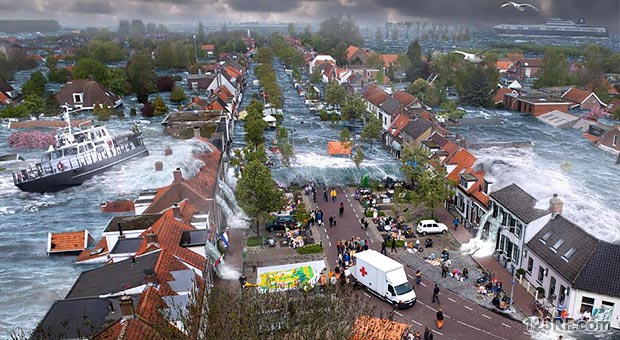Some people view prepping as a hobby just in case something happens. Others take it extremely seriously and understand that what you do today may save your life tomorrow. Prepping should be viewed as a way of life, and a state of mind. You’re going to make some mistakes when prepping for disaster but we’re going to give you a heads-up on a few of the most common errors that people make so that you may avoid them and learn from the mistakes of others.
Natural selection in case of SHTF will be determined by the level of preparedness of each and every one of us. Those of us who are ready to live off the grid and have acquired the necessary survival skills along with the will and the means to survive in a collapsed society will emerge as the winners in the end.
 Obviously, when you’re a novice in the fine art of prepping, you’re prone to some rookie mistakes, because after all, nobody’s perfect. And prepping encompasses everything from building your own private bunker in case of full societal collapse to stockpiling basic supplies and acquiring minimal survival skills sufficient to get you through a week without power.
Obviously, when you’re a novice in the fine art of prepping, you’re prone to some rookie mistakes, because after all, nobody’s perfect. And prepping encompasses everything from building your own private bunker in case of full societal collapse to stockpiling basic supplies and acquiring minimal survival skills sufficient to get you through a week without power.
Being an effective prepper implies that you have a general idea about surviving in any situation, and you have the skills and the necessary tools for every imaginable scenario. In order to survive, you have only 3 basic needs to fulfill at any given time: food, water and shelter. The rest are just luxuries.
1. Never assume you know everything about a subject. Have all your bases covered by doing plenty of research: read blogs and articles, watch online forums and prepping videos, and always stay informed and up to date with current events and practices.
2. Don’t overestimate yourself, know your limits and know your strengths and weaknesses alike. Be aware of your actual skills, be realistic about your supplies and know how long they will last you in the worst case scenario.
3. Don’t put all of your eggs in one basket. Be flexible and always have a backup plan. Repetition is the key to success. Learn how to use firearms and cold weapons alike, stockpile in multiple locations because you never know when you’ll have to leave home. But learn also how to survive without them, if needed.
4. Never panic because fear will cripple you if you let it. Don’t get overwhelmed by what’s going on in the world around you; stay calm and collected when planning for survival. Don’t get yourself into a spending frenzy because you don’t have to buy your way out of it just now. Do what you can and be comforted knowing that you’re working on it.
5. Don’t get obsessed over your survival gear, especially if you have no idea how to use it in a real life scenario. Physical tools are nothing but tools. In the end, just about any tool can be improvised/DIY’d; knowledge and survival skills are essential, focus on learning and training instead of stockpiling like there’s no tomorrow (literally!).

6. Don’t forget to keep an accurate inventory of your stockpiled items. Also check it regularly and watch for spoilage, damage or infestation of your stockpile, especially when it comes to food, guns and ammo.
7. Don’t keep your family members and friends out of your prepping plans. Share your thoughts, encourage them to join you, and spread the word to those that you love. You may want to do it gently and ease into the process so as not to overwhelm them or scare them away from the idea.
8. Don’t get fixated on prepping. Remember that your life is lived in the real world so spend your quality time with your family and do the things that you love to do. Keep things balanced and don’t go to the extreme.
9. Don’t brag on about your prepping activities and avoid revealing your plans and strategies to strangers and especially online. You can easily become a target in a SHTF scenario, you know that saying: loose lips sink ships. The world doesn’t need to know that you’re stockpiling $10,000 worth of guns, ammo and food in your basement – keep it to yourself. OPSEC (operation secrecy, in this particular case) is the name of the game!
10. Don’t get too comfortable no matter how well you’ve prepared, or how peaceful things are in the world, or how great the weather is. Avoid that false sense of security (guns have a tendency to lend a false sense of security but just having guns all over the place doesn’t mean that you can actually use them efficiently if SHTF). Don’t lose focus and don’t stop practicing.
11. Don’t forget to test your gear and your skills in a real life situation! Practice makes perfect.
You’re going to make mistakes in the beginning but you’ll learn as you go. Continue to do your research and learn.
Don’t become complacent and don’t think that just because you’ve got a bunker stocked full of food and weapons that you’re ready because even the most well-stocked bunker still needs to have the stock rotated and the weapons cleaned regularly.
Keep one eye on your stockpile and the rest of your mind on living a full, happy life in the here and now. After all, you only get one chance to live to the fullest – don’t waste that chance by worrying about things that are yet to come without enjoying the things that make you happy right now.
We hope that this list of usual mistakes when prepping will help you to avoid them, and if you have any others that you’d like to add, please tell us about them in the comments section below.
This article has been written by Chris Black for Survivopedia.
About Chris Black
Chris Black is a born and bred survivalist. He used to work as a contractor for an intelligence service but now he is retired and living off the grid, as humanly possible. An internet addict and a gun enthusiast, a libertarian with a soft spot for the bill of rights and the Constitution, a free market idealist, he doesn’t seem very well adjusted for the modern world. You can send Chris a message at editor [at] survivopedia.com.






Wonderful information. ..
I would like to be added to your site.
Thank you